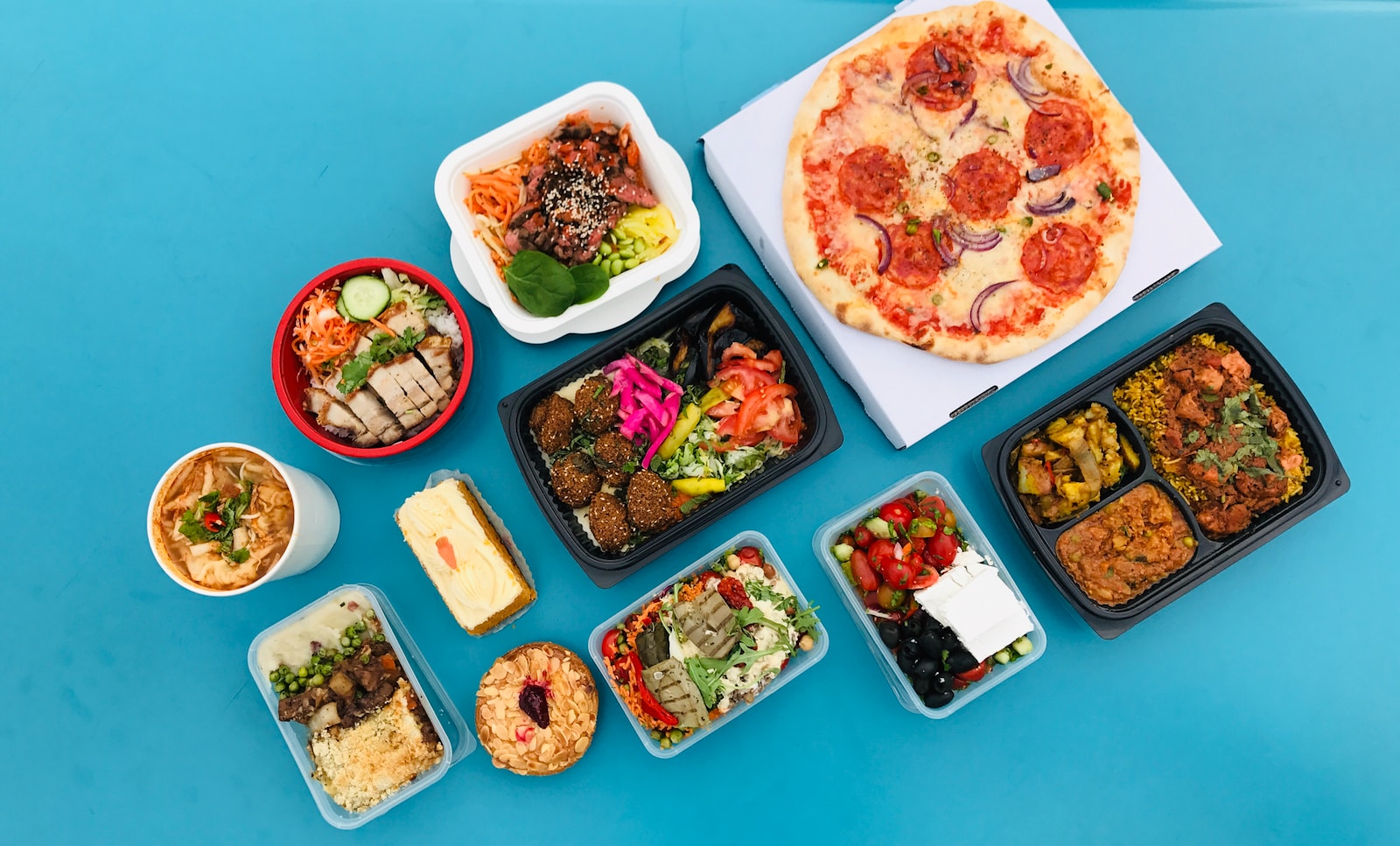The period following spine surgery is a critical phase, during which nutrition plays a pivotal role in driving the healing process. Especially, certain foods have the propensity to either aid or impede recovery, making it imperative to understand which ones to embrace and which ones to avoid. While it is common knowledge that a balanced, nutritious diet is beneficial, the specific impact of certain food types on post-spinal surgery recovery is less universally understood. Join us as we evaluate the pros and cons of various dietary elements and their influence on your healing journey.
Understanding Post-Surgery Nutrition
A thorough understanding of post-surgery nutrition is essential as it plays a significant role in enhancing recovery and facilitating peak health following a spine surgery. One of the key aspects of post-surgery nutrition is the importance of hydration. Adequate hydration guarantees the body’s tissues are well-nourished, assists in the flushing out of toxins, and contributes to the body’s overall healing process. Drinking sufficient water also helps prevent constipation, a common side effect of pain medications often prescribed after spine surgery.
In addition to hydration, balanced meals play an important role in post-surgery recovery. Each meal should consist of a combination of lean protein, whole grains, fruits, and vegetables. Lean protein sources such as fish, chicken, or tofu aid in tissue repair and strengthen the immune system. Whole grains provide energy and help maintain a healthy digestive system. Fruits and vegetables, packed with essential vitamins and minerals, promote healing and boost immunity.
The Role of Inflammation in Recovery
In the context of post-spine surgery recovery, understanding inflammation becomes critical due to its significant impact on the healing process. It’s a natural response of the body that can either promote or impede recovery, making it essential to manage effectively. The adoption of an anti-inflammatory diet can be beneficial, as it has the potential to expedite healing and improve overall health outcomes.
Understanding Post-Surgery Inflammation
Post-surgery inflammation, an integral part of the body’s healing process, often becomes a concern due to its potential to exacerbate discomfort and prolong recovery time following spine surgery. It is important to understand that inflammation markers, such as C-reactive protein and erythrocyte sedimentation rate, rise after surgery, indicating an immune response. These markers can provide insight into the extent of inflammation and guide treatment. Post-surgery supplements, particularly those rich in omega-3 fatty acids, can help manage inflammation, but they should be used under medical supervision. While inflammation is necessary for healing, excessive inflammation can interfere with recovery, making it essential to understand its role and manage it appropriately in the post-operative period.
Inflammation’s Impact on Recovery
Understanding the effects of inflammation on recovery following spine surgery is vital, given that excessive inflammation can greatly impede the healing process and prolong the period of recuperation.
Inflammation’s triggers are varied and can include:
- Physical trauma, including surgery-induced damage
- Infections that can cause a surge in inflammatory responses
- Stress, which can heighten inflammatory reactions
- Dietary inflammation, which can be induced by certain food items
Understanding these triggers can help individuals adapt their lifestyle and dietary habits to minimize inflammation. It’s essential to emphasize that while some inflammation is part of the body’s natural healing process, excessive inflammation can lead to complications. Hence, managing inflammation effectively is crucial for a smooth and speedy recovery after spine surgery.
Anti-Inflammatory Diet Benefits
Embracing an anti-inflammatory diet post-surgery can play a pivotal role in accelerating recovery by mitigating the harmful effects of excessive inflammation. Dietary fiber’s role in this process is critical, as it promotes healthy digestion, regulates blood sugar, and supports the body’s immune response. Whole grains, legumes, fruits, and vegetables are rich in dietary fiber and should form a substantial part of your post-surgery diet.
Omega-3 fatty acids, another key component of an anti-inflammatory diet, are primarily found in fatty fish like salmon, mackerel, and tuna. They help reduce inflammation and promote healing by regulating the body’s inflammatory processes. Incorporating these foods into your diet can greatly aid in your recovery after spine surgery.
Refined Sugars: A Hidden Danger
In addition, refined sugars, although commonly consumed, can pose significant challenges to recovery after spine surgery. Their detrimental effect on inflammation can hinder the healing process, undermining the benefits of surgery. Moreover, their pervasive presence in processed foods makes it critical for patients to understand and identify these hidden dangers.
Impact on Inflammation
In the complex world of post-operative nutrition, the insidious role of refined sugars, often concealed in our daily diets, markedly contributes to heightened inflammation, potentially hindering the healing process after spine surgery. These sugars act as Inflammation Triggers, effectively becoming Healing Disruptors.
Consider this:
- Refined sugars lead to a surge in blood glucose levels, instigating an inflammatory response.
- Chronic inflammation, stimulated by high-sugar diets, can delay the healing process.
- The immune system, already taxed by the surgery, is further challenged by the inflammation induced by sugars.
- Excess inflammation might exacerbate pain and discomfort, prolonging the recovery period.
Understanding the detrimental effects of refined sugars on inflammation is crucial in promoting excellent recovery after spine surgery.
Sugars in Processed Foods
The essential presence of refined sugars in processed foods poses a hidden danger to post-operative recovery, particularly for those healing after spine surgery. It’s not uncommon to develop a sugar addiction post-surgery due to increased stress and altered eating habits. This addiction can derail recovery by exacerbating inflammation and lowering immune response. Additionally, sugars in processed foods can lead to weight gain, an added concern for patients recovering from spinal surgery, as excess weight increases strain on the spine. But beware, artificial sweeteners may seem like a healthier option, but their impact isn’t benign. They can disrupt gut health, which plays a vital role in overall recovery. Therefore, prioritizing a low-sugar diet post-surgery can greatly improve healing outcomes.
Trans Fats and Your Healing Process
Starting on the road to recovery after spine surgery, one must be mindful of the potential hindrance trans fats may pose to your healing process. Trans fats, often found in processed foods, can increase inflammation, slow healing, and contribute to heart disease.
Trans Fat Sources are primarily found in:
- Processed foods such as cookies and chips
- Fast foods
- Frozen meals
- Some margarines
Understanding these sources is crucial to guarantee a healthier recovery. It is essential to ponder Trans Fat Alternatives, such as:
- Foods rich in omega-3 fatty acids like fish and walnuts
- Olive and canola oils
- Avocados
- Almonds
High-Sodium Foods to Sidestep
In the aftermath of spine surgery, it becomes notably important to manage your dietary sodium intake. An excess of sodium can hinder your body’s healing process by increasing swelling and inflammation. In the following discussion, we will identify the impacts of excessive sodium and highlight some sodium-rich foods that should be avoided.
Impact of Sodium Intake
Excessive intake of sodium can exacerbate inflammation and pain after spine surgery, which makes it essential to sidestep foods high in this mineral. The impact of sodium is far-reaching and manifests in various ways:
- Sodium’s cardiovascular effects are profound – high sodium intake can lead to hypertension, increasing the risk of heart disease and stroke.
- Hydration and sodium are interconnected. Excessive sodium can cause fluid retention, leading to swelling and increased discomfort.
- High sodium levels can affect the body’s calcium balance, negatively impacting bone health – a critical aspect for spine surgery recovery.
- A high sodium diet can also affect kidney function, placing additional strain on the body during the recovery phase.
Understanding these impacts, it’s evident that controlling sodium intake post-surgery is not just advantageous, but essential.
Sodium-rich Foods to Evade
What specific foods should be avoided due to their high sodium content in the aftermath of spine surgery? Patients recovering from spinal operations must sidestep sodium-rich foods such as processed meals, canned soups, deli meats, and certain cheeses. Sodium’s effect on bones can be detrimental, as it may increase calcium loss, leading to weaker bones. This is particularly concerning for spine surgery patients who need strong bones for successful recovery. Additionally, sodium’s influence on muscles should not be overlooked. High sodium intake can cause muscle cramps, which can be uncomfortable for patients already dealing with back pain. As a result, reducing sodium intake is a practical step towards a smoother, potentially quicker recovery post-spine surgery.
Processed Meats: More Harm Than Good
The consumption of processed meats, such as hot dogs, bacon, and deli meats, post spine surgery can impede recovery, due to their high content of saturated fats and sodium. A vital element of this hindrance lies in the meat preservatives concern.
Processed meats often contain chemicals known as nitrates and nitrites, which serve to extend shelf life and enhance color. However, these additives have been linked to serious health risks that can exacerbate post-surgery complications. A health risks assessment of processed meats reveals several concerning factors:
- Increased Inflammation: Saturated fats in processed meats can trigger inflammation, which can delay the healing process post-surgery.
- Elevated Blood Pressure: High sodium content can lead to increased blood pressure, straining the heart and vascular system, adding risk during recovery.
- Cancer Risk: Research suggests that consuming processed meats can increase the risk of certain types of cancer, which is an additional health concern for recovering patients.
- Weight Gain: Processed meats are often calorie-dense, contributing to weight gain that can put extra pressure on the spine, hampering recovery.
The Problem With White Flour
Often overlooked in dietary considerations, white flour presents significant challenges to a healthy recovery post spine surgery due to its high glycemic index and lack of essential nutrients. Its high glycemic index can lead to rapid spikes in blood sugar levels, resulting in inflammation that can hamper the healing process. Additionally, white flour is devoid of essential nutrients such as fiber, vitamins, and minerals, which are important in supporting a healthy immune system and promoting wound healing.
Moreover, consuming white flour may exacerbate gluten sensitivity in some individuals, leading to an inflammatory response that can further complicate recovery. Gluten, a protein found in wheat from which white flour is derived, can trigger an immune response in people with gluten sensitivity or celiac disease, causing symptoms such as bloating, diarrhea, and abdominal pain.
Given these concerns, patients recovering from spine surgery are advised to consider flour alternatives. Options such as almond flour, coconut flour, and quinoa flour are not only gluten-free but also rich in nutrients and have a lower glycemic index, making them a significant choice for post-surgery recovery. These alternatives can easily be incorporated into meals, aiding in a smoother, complication-free recovery.
Alcohol’s Impact on Healing
In the domain of post-operative care, particularly after spine surgery, the consumption of alcohol can greatly impede the healing process. Alcohol can have detrimental effects on the body’s ability to heal itself, especially in the post-operative phase.
The reasons for this are manifold:
- Alcohol interaction with medications: Post-operative care often involves a regimen of prescription medicines, including painkillers and antibiotics. Alcohol can interact negatively with these drugs, reducing their efficacy or causing harmful side effects.
- Alcohol induced dehydration: Alcohol is a diuretic, which means it can lead to dehydration. This can compromise the body’s healing mechanisms, resulting in a prolonged recovery period.
- Impaired immune function: Regular consumption of alcohol can weaken the immune system, making it harder for the body to fight off infections, an important factor in post-operative care.
- Increased risk of complications: Alcohol can increase the risk of post-surgery complications like bleeding and delayed wound healing.
Caffeine: A Post-Surgery No-No
Similar to alcohol, caffeine also poses significant challenges to the recovery process after spine surgery. Caffeine is a stimulant that can negatively impact the healing process. It interferes with sleep patterns, essential for recovery, and can increase sensitivity to pain due to its impact on the nervous system. Additionally, it can lead to dehydration, a condition that slows down healing and increases the risk of complications.
Caffeine withdrawal symptoms can mimic or exacerbate post-surgery discomfort. These symptoms include headaches, fatigue, irritability, and depression. Hence, it is recommended to gradually reduce caffeine intake before surgery to mitigate these effects.
Decaffeinated alternatives are a viable solution for those who find it difficult to completely eliminate caffeine from their diet. These alternatives can provide the psychological comfort of a familiar routine without the detrimental effects of caffeine on the recovery process. Herbal teas, decaffeinated coffee, and caffeine-free soft drinks are some options to contemplate.
Dairy Products: A Controversial Topic
While dairy products are a staple in many diets, their role in post-operative recovery, particularly after spine surgery, is a matter of significant debate.
On one hand, dairy products are rich in calcium and can potentially promote bone healing. On the other, they can pose problems for people with lactose intolerance concerns. There is also the calcium intake debate, with some studies suggesting that excessive intake might not necessarily lead to stronger bones.
Here are some key points to take into account:
- Dairy products can cause digestive issues for those with lactose intolerance, potentially complicating recovery.
- The benefits of calcium in bone healing are undeniable, but the most suitable amount is still contested.
- Some dairy products are high in unhealthy fats, which can lead to inflammation and hinder recovery.
- There are many non-dairy sources of calcium that might be easier on the digestive system.
Given these points, it’s important to consult with your doctor or a dietitian before making significant dietary decisions after spine surgery. They can provide personalized advice based on your condition, dietary restrictions, and recovery needs.
Hard-to-Digest Raw Foods
A significant number of raw foods, particularly those rich in fiber such as certain fruits and vegetables, may pose digestion challenges for patients recovering from spine surgery. Raw food risks include indigestion, bloating, and stomach discomfort, which can worsen post-operative pain and discomfort. These challenges are compounded by the fact that the digestive system may already be compromised due to medication effects or the body’s stress response after surgery.
Certain raw foods, such as broccoli, cabbage, and whole grains, are high in insoluble fiber, which can be particularly hard to digest. Other raw foods like nuts and seeds, while nutritious, can also present digestion difficulties due to their high fat and protein content, which can slow down the digestive process.
To address these potential issues, it’s advisable to gradually shift back into a diet that includes raw foods, starting with those that are easier to digest. Cooking or steaming these foods can also enhance their digestibility. Always remember, your focus should be on providing your body with the nutrients it needs to heal without overburdening your digestive system. Consult with your healthcare provider or a registered dietitian for advice tailored specifically to your recovery needs.
The Negative Effects of Spicy Foods
For those recovering from spine surgery, indulging in spicy foods may inadvertently exacerbate discomfort and prolong the healing process. Spicy foods’ acidity can irritate the digestive system, leading to increased discomfort post-surgery.
Spicy foods are known for their intensity and rich flavors, but their effects on a recovering body can be less than desirable:
- They can cause heartburn and indigestion, common side effects of the elevated acidity levels in spicy dishes.
- This provokes a strain on the digestive system, already sensitive following surgery.
- Spicy foods can also trigger inflammation, a response you want to limit as your body focuses on healing your spine.
- Finally, they can disrupt sleep patterns due to digestive discomfort, essential rest periods that your body needs to heal optimally.
In essence, it’s important to understand that while spicy foods may be a favorite for some, their acidity and triggering effects can cause significant digestive discomfort post-surgery. It is advised to limit or avoid these types of foods during the recovery phase to ensure a smoother and more comfortable healing process.
Frequently Asked Questions
Is It Safe to Take Dietary Supplements After Spine Surgery?
While dietary supplements may help with post-surgery nutrition, it’s important to take into account potential supplement interactions. Consult your healthcare provider before taking any supplements after spine surgery to guarantee safety and efficacy.
How Does Smoking or Vaping Affect Recovery After Spine Surgery?
Smoking or vaping can severely hinder recovery after spine surgery due to nicotine’s impact on blood flow and bone healing. Even smoking alternatives like vaping can delay recovery, suggesting complete cessation is advisable.
Can I Consume Plant-Based Milk Products After Spine Surgery?
Yes, plant-based milk products can be consumed after spine surgery. They are excellent sources of plant-based proteins and are ideal for patients with lactose intolerance. However, always follow your surgeon’s dietary recommendations.
What Role Does Hydration Play in Post-Surgery Recovery?
Hydration plays a vital role in post-surgery recovery. It aids in nutrient transport, promotes healing, and helps avoid constipation. Following water intake recommendations guarantees maximum hydration benefits for a swift and effective recovery process.
Are There Specific Fruits or Vegetables to Avoid After Spine Surgery?
There are no specific fruits or vegetables universally recommended to avoid post-surgery. However, cruciferous vegetables’ impact on digestion and citrus fruits’ consideration for potential drug interaction should be evaluated on a case-by-case basis.



